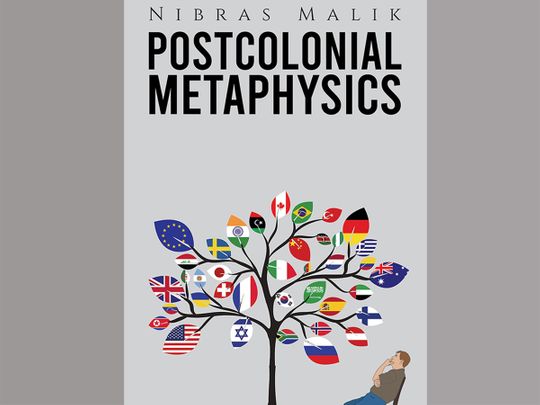
As a debut poetry collection “Postcolonial Metaphysics” by Nibras Malik transcends the boundaries of conventional verse, delving deep into the profound philosophical questions surrounding contemporary political issues.
Published by Austin Macauley Publishers, this thought-provoking booklet combines poetic beauty with philosophical musings, creating a transcendent experience for readers.
In “Postcolonial Metaphysics,” the young poet skilfully weaves together the tapestry of societal concerns, such as colonialism, classism, migration, racism, social justice, and inequality, with the intricate fabric of introspective reflection.
At the heart of this collection lies the philosophy of mind and the mind-body problem — a theme that elevates the poetry to a metaphysical realm. Through carefully crafted verses, Nibras invites readers to contemplate the nature of consciousness, the interconnection between the mind and the physical world, and the inherent mysteries of human existence. The poems act as portals, guiding us into the depths of our own consciousness, provoking profound philosophical ponderings about the fundamental nature of reality.
Read more
Indelible imprint on reader’s mind
Her poetic expressions become conduits for exploring the intricate tapestry of the human psyche, unravelling the complexities of our thoughts, emotions, and perceptions.
By drawing on her rich inner life, she illuminates the depths of the human experience, creating a profound connection between the reader and the universal human condition.
Through her evocative verses, Nibras breaks down the barriers of stigma and encourages society to embrace a more compassionate understanding of mental well-being.
Among the constellation of remarkable poems in this collection, “Refugee Blues,” “Ambition,” “White Supremacy,” and “The Experience of Consciousness” stand out as beacons of poetic brilliance. Each poem is a testament to the power of words, provoking emotions, challenging preconceptions, and igniting the spark of intellectual curiosity.
Lament for the Earth
Take the poem, Lament for the Earth, for instance. It delves into the concept of a primordial time, invoking ancient stories that depict a sublime and undamaged Earth. It suggests a state of harmony where every aspect of nature carried an inherent sacredness.
Soon the poet introduces cynicism as a force that petrifies and solidifies all it touches, turning the vibrant and living into cold and unyielding stone. Philosophically, this can be seen as a metaphor for the hardening of hearts and minds, a loss of connection to the sacredness of the world, and the understanding of its intrinsic value.
Despite this, the speaker clings to the notion of salvation, suggesting an exploration of hope, resilience, and the potential for transformative change.
When analyzing these stanzas together, we see a contrast between the idealized past and the cynicism of the present, highlighting the tension between human actions that have contributed to environmental degradation and the persistent belief in the potential for redemption.
It invites contemplation on humanity's role in the climate crisis, the need for a shift in consciousness and values, and the pursuit of solutions that restore the sacredness of the Earth. Ultimately, it prompts us to reflect on our interconnectedness with the environment and our responsibility to foster a more sustainable and harmonious relationship with nature.
Confronting uncomfortable truths
“Postcolonial Metaphysics” is an immersive and expansive poetic journey, where social commentary converges with introspective contemplation and philosophical inquiry.
Nibras Malik’s masterful fusion of poetic beauty and profound philosophical insights creates a work that transcends mere words, resonating with the reader’s soul.
As readers engage with the collection’s rich tapestry of thought and emotion, they are confronted with the timeless questions that define our humanity and are invited to reflect upon their own place in the grand narrative of existence.
Ahmad Nazir is a UAE-based freelancer writer









